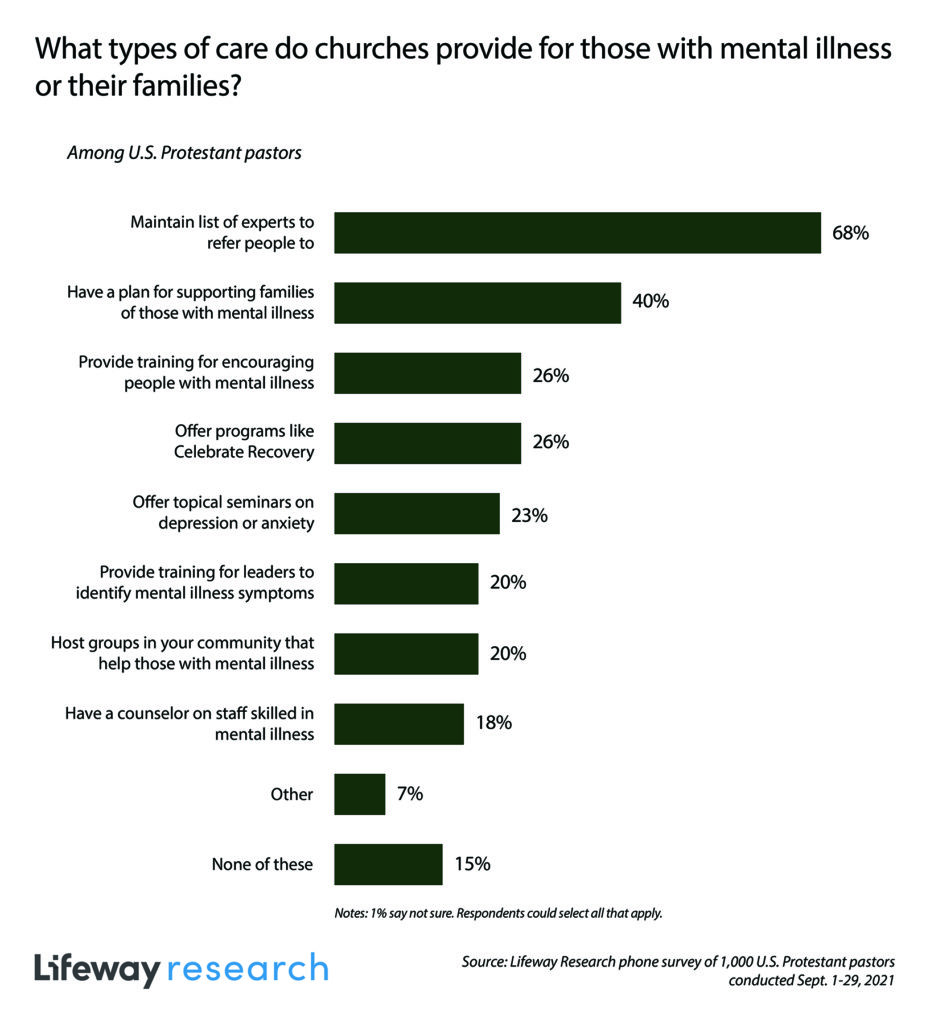“While the typical pastor hasn’t experienced mental illness themselves, they are proactively teaching about this need and feel a responsibility to help,” said McConnell. “While preaching on mental illness is the norm and even more pastors feel their church is responsible to help the mentally ill, still 37% of pastors rarely or never bring it up from the pulpit.”
Beyond talking about it from the pulpit, 9 in 10 U.S. Protestant pastors (89%) say local churches have a responsibility to provide resources and support for individuals with mental illness and their families. Few pastors (10%) disagree.
When asked about specific types of care their churches provide for those suffering from mental illness or their families, more than 4 in 5 pastors say they offer something. Almost 7 in 10 (68%) say their church maintains a list of experts to whom they can refer people. Two in 5 (40%) have a plan for supporting families of those with mental illness. Around a quarter say they provide training for encouraging people with mental mental health issues (26%), offer programs like Celebrate Recovery (26%) or offer topical seminars on depression or anxiety (23%). Close to 1 in 5 provide training for leaders to identify symptoms of mental illness (20%), host groups in their community that help those with mental illness (20%) or have a counselor on staff skilled in mental illness (18%). Another 7% say they provide another resource.

“In the years between studies, more churches have developed plans for supporting families of those with mental illness. A few more are offering training for leaders to identify symptoms of mental illness and hosting groups such as the National Alliance on Mental Illness,” said McConnell. “The most common and earliest way for a church to care for someone with mental illness is to have a list of mental health experts to refer people to. Yet almost a third of churches don’t have such a list.”
Younger pastors, age 18-44, (9%) are the least likely to say they don’t provide any of the potential resources. Pastors at churches with fewer than 50 in attendance (24%) are the most likely.
As pastors are most likely to say they have a referral list at their church, most say they’re prepared to identify when someone needs to be referred to an expert. Almost 9 in 10 pastors (86%) agree they feel equipped to identify when a person is dealing with acute or chronic mental illness that may require a referral to a medical professional, with 34% strongly agreeing. Few (12%) don’t feel equipped, and 1% aren’t sure.
The percentage of pastors who feel equipped is up slightly from 2014 when 81% said they felt capable of making the identification and referral.
For more information, view the complete report.
This article originally appeared here.

